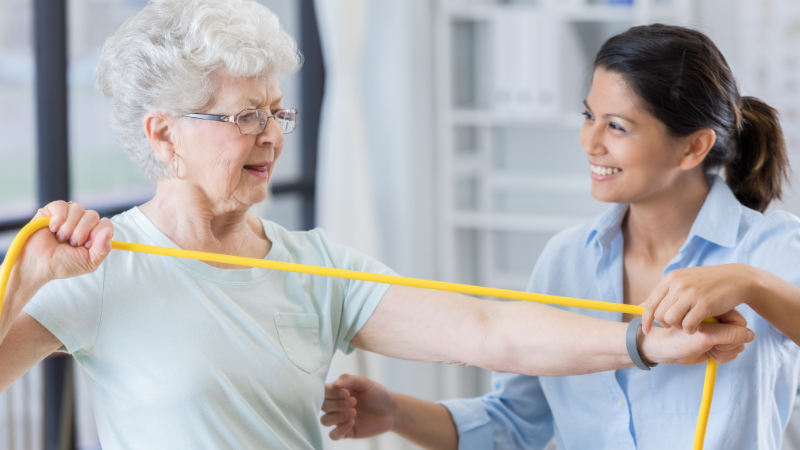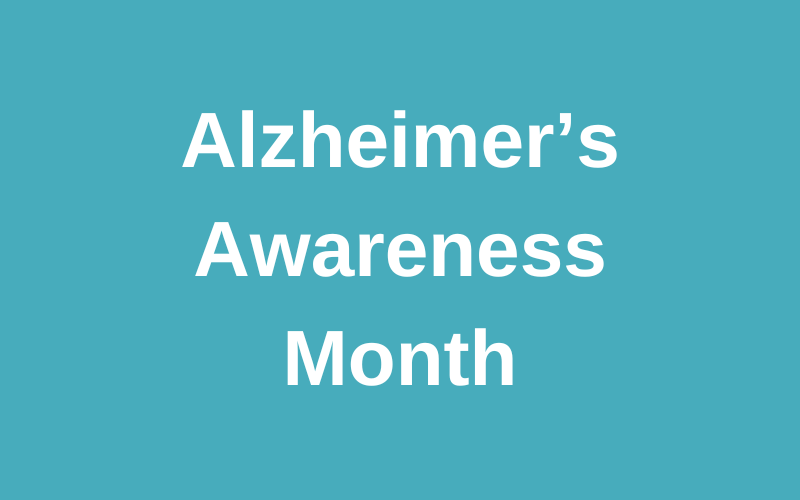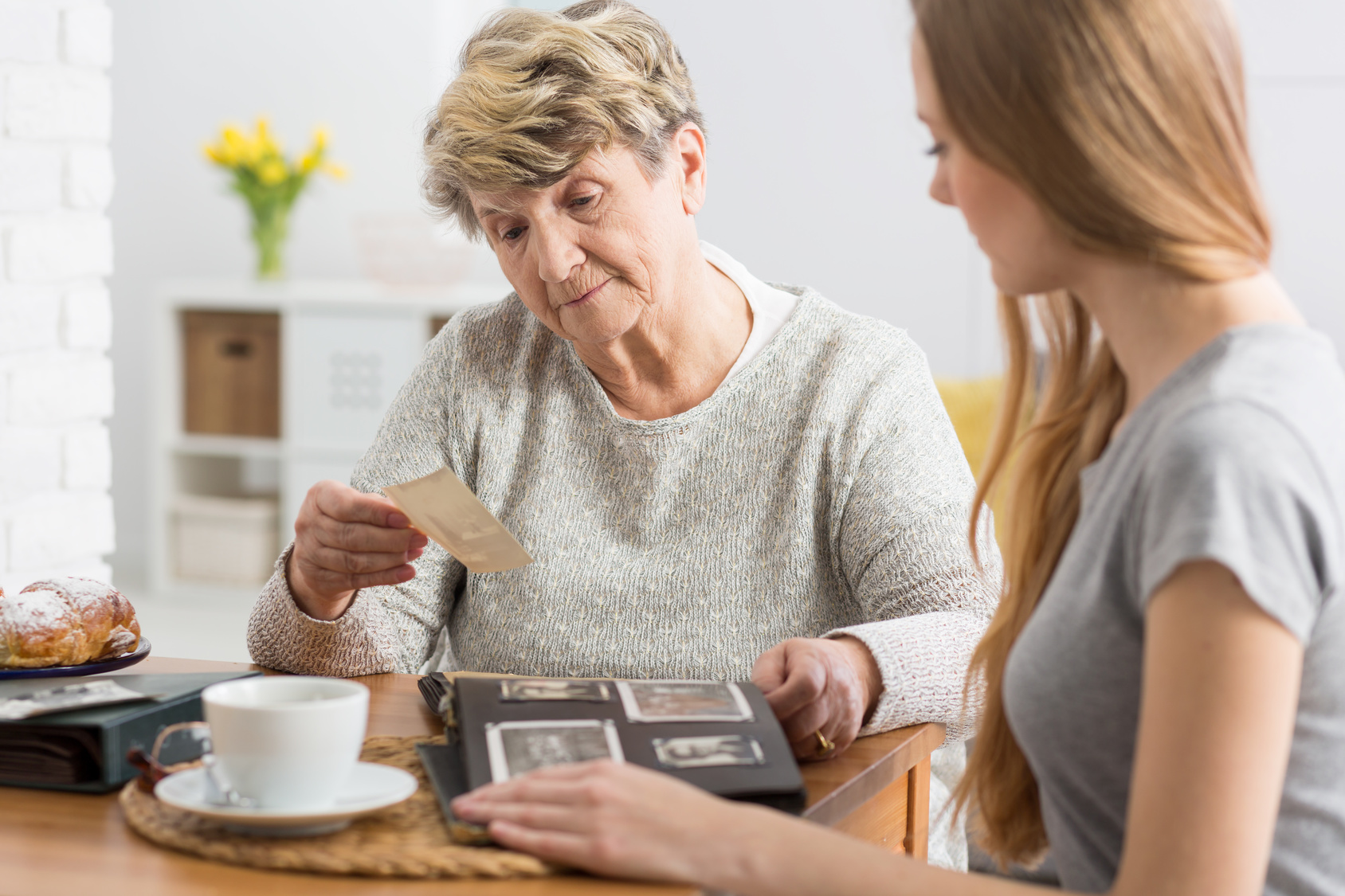Dementia is a complex condition affecting countless individuals globally. It doesn’t only impact memory and cognitive capabilities but also takes a toll on physical health. As caregivers or family members of people grappling with dementia in North Texas, you understand the significance of maintaining their overall well-being. A critical component of care is supporting physical activity and exercise.
Physical activity and exercise can offer numerous advantages for dementia adults, like supporting their spirits, lowering the risk of accidents, and enriching their overall life quality. As dedicated professionals from Assisting Hands Home Care in North Texas, we aim to offer you the tools and knowledge to enhance the lives of those grappling with dementia.

The Significance of Physical Activity for Dementia Adults
Dementia is an advancing neurological disorder that disrupts memory, cognition, and behavior. As the ailment progresses, dementia sufferers tend to become less physically active, leading to various physical and mental health issues.
Encouraging physical activity and exercise is vital for the following reasons:
- Enhanced Mood and Reduced Restlessness
Physical activity triggers the release of endorphins, which are natural mood enhancers. For those with dementia, this is particularly significant, as they might grapple with depression and anxiety. Regular exercise can alleviate these symptoms and enhance their emotional well-being.
- Improved Cognitive Function
Exercise has proven to positively influence cognitive function. Engaging in physical activity can assist in preserving and even enhancing memory and decision-making capabilities in some cases. This is crucial for individuals with dementia, given that cognitive decline is a hallmark of the disease.
- Heightened Independence
By encouraging physical activity, you can help your loved ones maintain their strength and balance. This can diminish the risk of falls and injury, which is especially critical for dementia adults who might struggle with understanding their physical limitations
- Social Interaction
Engaging in group exercises or even one-on-one physical activities at home can provide a sense of social interaction and companionship, which is crucial for emotional well-being. It also offers dementia adults the opportunity to bond with their caregivers or loved ones.
- Enhanced Sleep
Physical activity can contribute to improved sleep patterns, which significantly impacts the quality of life for those dealing with dementia. Poor sleep can exacerbate confusion and restlessness, so promoting better sleep through exercise is essential.
- Delayed Disease Progression
While physical activity cannot reverse dementia’s effects, it can potentially slow down the disease’s progression and maintain functionality for a more extended period. Every preserved bit of mental and physical function is a victory in the fight against dementia.
Suggestions for Encouraging Physical Activity and Exercise at Home
Now that we recognize why physical activity is essential for dementia adults, let’s explore practical suggestions to assist you in integrating exercise into your daily regimen:
- Select Appropriate Exercises
Choose exercises that are secure and suitable for your loved one’s physical abilities. Low-impact activities like walking, swimming, or seated exercises can be excellent choices. Always consult with a healthcare expert or therapist to determine the best exercises for your loved one’s condition.
- Establish a Structured Routine
Institute a consistent exercise regimen and adhere to it as closely as possible. Individuals with dementia often benefit from structure and predictability, so having a set time for exercise can be helpful.
- Be Patient and Supportive
Dementia can bring about confusion and frustration, so practice patience and understanding when engaging in exercise. Offer encouragement and support and avoid pushing too hard if your loved one is resistant.
- Make it Enjoyable
The more enjoyable the exercise, the more likely your loved one is to participate. Include activities they have historically enjoyed, whether it’s dancing, gardening, or even playing simple games.
- Utilize Music
Music can be a powerful motivator for physical activity. Play their preferred tunes or songs from their past to make the exercise more enjoyable and engaging.
- Join In
Participate in the exercises alongside your loved one. This not only offers companionship but also serves as a model, making it easier for them to follow along.
- Prioritize Safety
Safety is paramount when promoting physical activity for individuals with dementia. Ensure the exercise environment is devoid of hazards, and always have someone present to supervise. Use suitable equipment and adapt exercises as necessary to accommodate their physical limitations.
- Monitor Progress
Keep tabs on your loved one’s progress concerning physical and cognitive changes. Share this information with healthcare professionals to ensure that the exercise program remains appropriate and beneficial.
- Stay Hydrated
Proper hydration is vital, especially when engaging in physical activity. Encourage your loved one to drink water before, during, and after exercise to prevent dehydration.
- Seek Professional Guidance
Contemplate working with a physical therapist or a professional caregiver specialized in dementia care. They can offer guidance and tailor exercise programs to your loved one’s requirements.
- Be Adaptable
Dementia can be unpredictable, and there may be days when your loved one isn’t in the mood for exercise. It’s essential to be adaptable and flexible while still promoting physical activity when possible.

Call Assisting Hands Home Care in North Texas
Fostering physical activity and exercise for dementia adults at home is a valuable and meaningful way to enrich their overall well-being. The benefits of physical activity extend beyond the physical; it can enhance mood, cognitive function, and the quality of life for those dealing with dementia. As caregivers or family members in North Texas, your support in implementing a regular exercise routine can make a significant difference in the lives of your loved ones.
Remember to select safe and suitable exercises, establish a structured routine, be patient and supportive, make exercise enjoyable, and prioritize safety. Monitoring progress, staying hydrated, seeking professional help when necessary, and being flexible are all fundamental elements of an effective exercise plan for dementia adults.
Assisting Hands Home Care, your trusted home care agency in North Texas, is here to assist you in providing the best care possible for your loved ones with dementia. We offer a full range of in-home care services for your loved one living in Frisco, TX | Plano, TX | Allen, TX | Little Elm, TX | Prosper, TX and the surrounding areas.
Our team of compassionate and skilled caregivers can work with you to create a personalized care plan that includes physical activity and exercise routines. If you need professional assistance in caring for your loved one with dementia, don’t hesitate to reach out to us.
We are committed to helping you provide the highest quality of life for your loved one, right in the comfort of their home.







